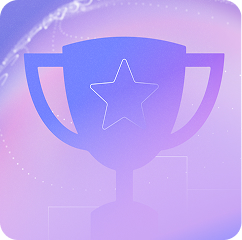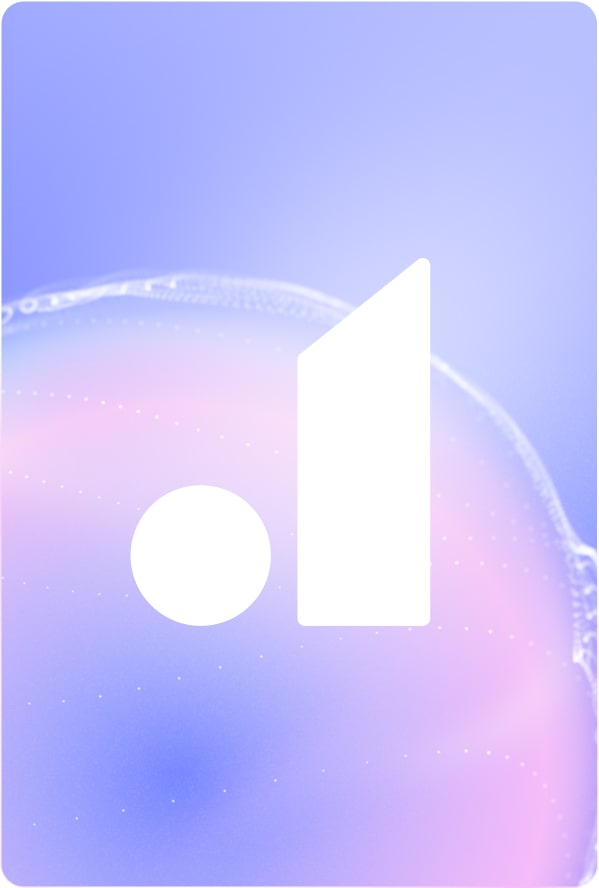
// Recruitment Technology, Executive Search Best Practices
Smarter Candidate Screening - Where AI Meets Human Expertise
30/08/2024
9 MIN
This article was originally published on UK Recruiter
You may have spent years honing your ability to screen candidates and identify top executive talent. You’ve reviewed countless resumes and conducted interviews that dig deep into what makes a leader stand out. But now, the landscape is shifting. AI tools are changing the way candidate screening is done, moving beyond the traditional resume and opening up new possibilities.
What is the screening process?
In its simplest form, the candidate screening process is your first line of defense against mismatched candidates. It’s where you sift through the noise to find those rare individuals who not only meet the job requirements but align with your client’s culture and vision.
This process, when done well, saves your clients time, money, and the potential headache of a bad hire.
But in the age of AI, the screening process has become more than just checking off boxes on a list of qualifications. It’s evolving into a multidimensional evaluation, where a candidate’s potential, adaptability, and cultural fit are as critical as their technical skills.
The five steps in the screening process
Screening candidates effectively requires a blend of traditional methods and cutting-edge technology.
While the basics remain – like reviewing resumes and conducting interviews—AI is now playing a crucial role in enhancing the process. From parsing resumes with advanced algorithms to providing deeper insights during screening calls, AI is transforming how we identify top talent.
Let’s explore the five key steps in the modern screening process, where technology meets recruitment:
1. Initial resume review
This is the traditional starting point. You scan resumes for the requisite experience, education, and skill sets. But here’s where the limitations of resume-based screening become apparent—resumes can only tell you so much. They often lack context, nuance, and a sense of the person behind the paper.
2. Application of AI tools
Here’s where you start to leverage AI tools like Atlas that can not only parse resumes for keywords, but also go beyond that, analyzing language patterns to gauge attributes like leadership potential, problem-solving ability, and even emotional intelligence. AI can highlight candidates who may have been overlooked due to non-traditional backgrounds or unconventional career paths.
3. Candidate screening call
The screening call is your opportunity to delve deeper. You’re not just confirming the information on the resume – you’re probing for the intangible qualities – communication skills, cultural fit, and motivation. AI tools can assist by providing you with key insights or suggesting targeted questions based on the candidate’s profile.
4. Skills and personality assessments
While these have been around for a while, AI is enhancing them. By using AI-driven assessments, you can measure cognitive abilities, personality traits, and even predict job performance with a higher degree of accuracy. These tools can identify candidates who possess the soft skills that are increasingly critical in leadership roles.
5. Final evaluation and shortlisting
This is where everything comes together. AI tools can help by ranking candidates based on a composite score that factors in both hard and soft skills, ensuring you present your client with a well-rounded shortlist.
What is a candidate screening call?
In essence, a candidate screening call is your first real interaction with a potential hire. It’s a conversation that goes beyond what’s written on paper.
Here, you’re listening for more than just the right answers – you’re listening for the story behind the resume. AI tools can provide you with a framework for these calls, suggesting specific questions that align with the candidate’s profile, or even analyzing the call in real-time to identify sentiment and engagement levels.
But remember, while AI can enhance the screening call, it doesn’t replace the human touch. It’s still your expertise that turns data points into decisions.
The goal of candidate screening
You want to hire the best people for your clients. But the reality is, you don’t have unlimited time to sort through thousands of applicants. When you have 1,245 resumes in front of you, interviewing each candidate would take months of full-time work – clearly, that’s not practical.
The only other option would be to pick a few resumes at random, but you know that’s not a smart way to make such an important decision.
Deciding who to interview
To run a good hiring process, you need to narrow down the pool of applicants quickly. This means using screening to filter candidates based on specific criteria. However, no screening method is perfect. Some good candidates will inevitably be overlooked, making the process feel unfair at times – but it’s a necessary step to manage the numbers.
Your options for pre-screening candidates
You have several tools to help with pre-screening, including:
- Automated software that scans resumes for keywords.
- Manual resume reviews.
- Initial screening calls to assess fit.
Each method has its pros and cons. The key is to use them wisely, balancing speed and accuracy to find the most promising candidates.
📋 Screening methods – pros and cons
Screening method
Resumes
One-way interviews
Assessments
Positive
Provides comparable data, easy for candidates to submit.
Can reveal a candidate’s values and characteristics.
Can accurately measure a candidate’s ability to perform tasks.
Negative
Miss out on values as it focuses more on past experience than actual ability.
High dropout rate, not very effective for assessing ability or experience.
Time consuming for candidates, leading to a high dropout rate.
Why AI alone isn’t enough to filter candidates by resume
The limitations of AI become apparent when you rely solely on resume data. A resume is just a snapshot – a static, one-dimensional document that can’t capture the full scope of a candidate’s potential. AI excels at processing large amounts of data, but it’s only as good as the data you feed it. If you’re only feeding it resumes, you’re missing out on the bigger picture.
AI can’t assess cultural fit, gauge passion, or detect the subtle nuances of a candidate’s personality. It can’t tell you whether someone has the grit to push through challenges or the empathy to lead a diverse team. These are qualities that come through in conversations, in how a candidate tells their story, and in the way they’ve navigated their career.
At first glance, this seems like a perfect solution. AI can handle the heavy lifting, saving you time by identifying candidates who fit your needs. But here’s the thing – AI isn’t necessarily adding as much value as it promises.
For basic criteria like years of experience and required skills, you don’t need AI. A simple keyword search in your Applicant Tracking System (ATS) could accomplish the same task in about 10-15 seconds, dramatically reducing the number of applicants you need to consider. So, what’s AI really offering?
The promise of AI in candidate screening
The first wave of generative AI tools has offered a solution – AI-based candidate screening. You feed it a job description and a stack of resumes, and the AI will whittle down the pile, allowing you to focus on the candidates who are most likely to be a match. It sounds like a dream come true, especially when you’re drowning in applications.
Narrow your candidate search with Atlas. You can filter by exact job titles or related roles to find candidates with the right experience, even if their current job title differs slightly.
Tailor your search to specific industries, ensuring you only see candidates with relevant experience. Atlas’s algorithms and advanced filters recommend top candidates based on your detailed criteria, so you’re not just choosing at random but getting the best matches for the role.
See it in action
How it works
AI recommendation engines typically extract key elements from your job description—like the number of years of experience, required technical skills, and specific experience. It then matches those criteria to the resumes, creating a score that reflects how well each candidate aligns with the role.
AI’s real promise is in uncovering hidden gems within resumes – finding evidence of required experience or skills that aren’t immediately obvious.
For instance, let’s say you’re hiring a Front-End Software Engineer and your job description mentions, “Is enthusiastic about the importance of testing, promotes TDD, and has experience with React testing frameworks like Jest and React Testing Library.”
Sure, you could search for the keyword “TDD,” but what if a candidate wrote “Test Driven Development” instead? A simple keyword search would miss that, but an AI resume parser might catch it, thanks to its ability to understand the intent behind different phrases.
If you want to save time and focus only on the most qualified candidates, Atlas can help.
Use its advanced filtering options to target specific keywords, companies, and industries, so you only see candidates with the exact experience you need.
See how it works
The limits of AI
While this capability is impressive, it’s also where the limitations of AI start to show. The technology can match words and phrases, but it doesn’t understand the deeper context of a candidate’s experience, values, or potential. It can’t tell you whether a candidate’s approach to testing aligns with your team’s culture, or if their enthusiasm for TDD translates into practical, day-to-day problem-solving.
Moreover, relying too heavily on AI can mean missing out on candidates who don’t fit the exact mold but could bring something unique to the table. AI might filter out these candidates simply because their resumes don’t score high enough on the predefined criteria.
A better approach?
An alternative is to use tools like Atlas, which ensures the data on each candidate is clean and complete. With AI platforms like these, a quick 10-second filter can narrow your pool down to 50 candidates. Then, with an AI copilot, you can dive deeper into each candidate’s profile, gaining insights that go beyond the resume and gather information from emails and interview notes.
AI can certainly help with resume screening, but it’s not the silver bullet it’s often made out to be. It’s useful for basic filtering and for finding specific terms buried in resumes, but it won’t replace the need for a more nuanced, human touch in the hiring process.
As you incorporate AI into your screening process, think of it as a tool, not a replacement. Use it to complement your expertise, to uncover insights you might have missed, and to streamline the administrative aspects of candidate screening.
But don’t forget that the heart of executive search is still a deeply human endeavor. The best decisions are made when you combine the efficiency of AI with the intuition, experience, and judgment that only you can bring.
In this new age of smarter candidate screening, the balance between technology and human insight will define your success. You have the opportunity to lead the charge, to set the standard for how AI and human expertise can work together to identify the leaders of tomorrow. After all, finding the right candidate is not just about who looks good on paper – it’s about who will make a lasting impact in the real world.







